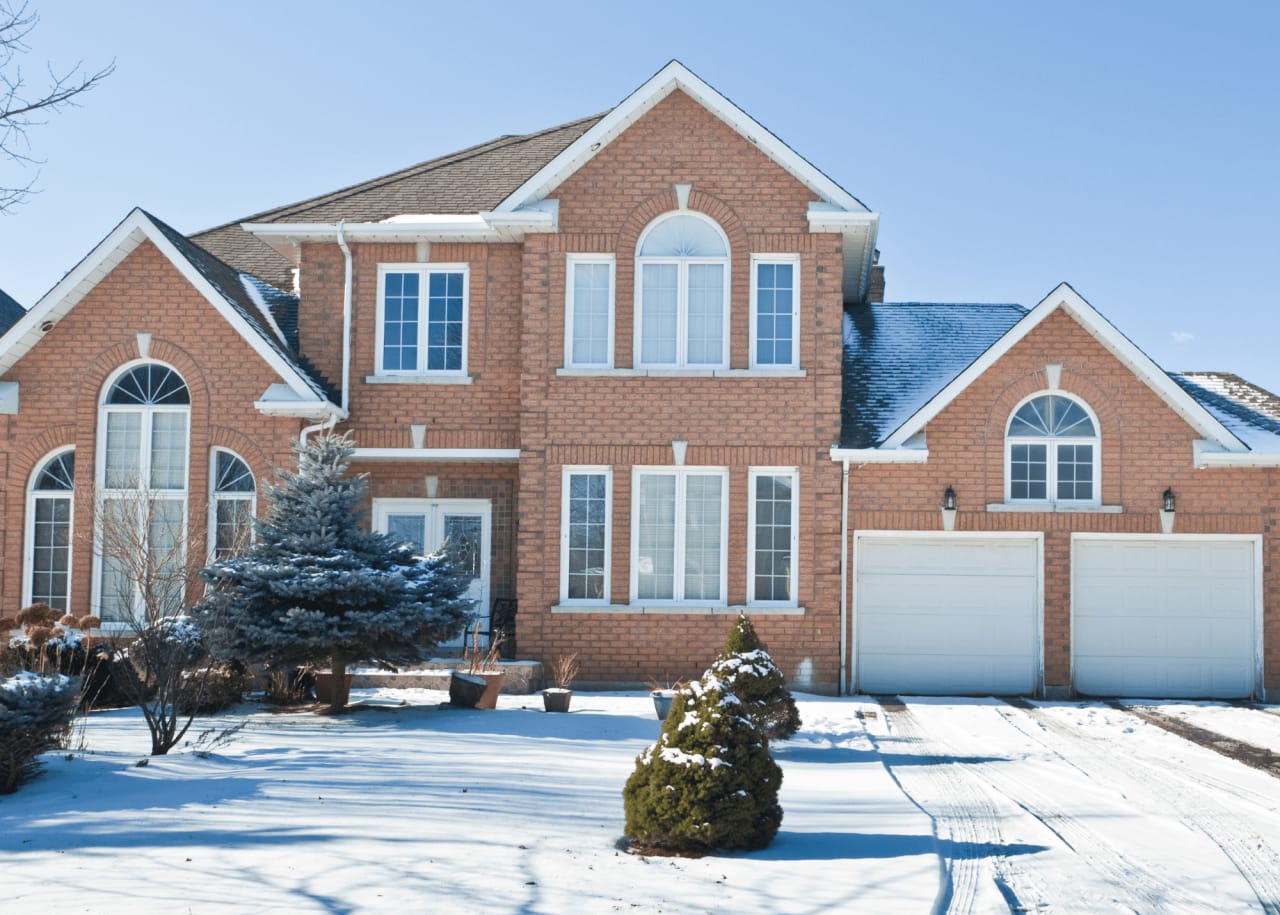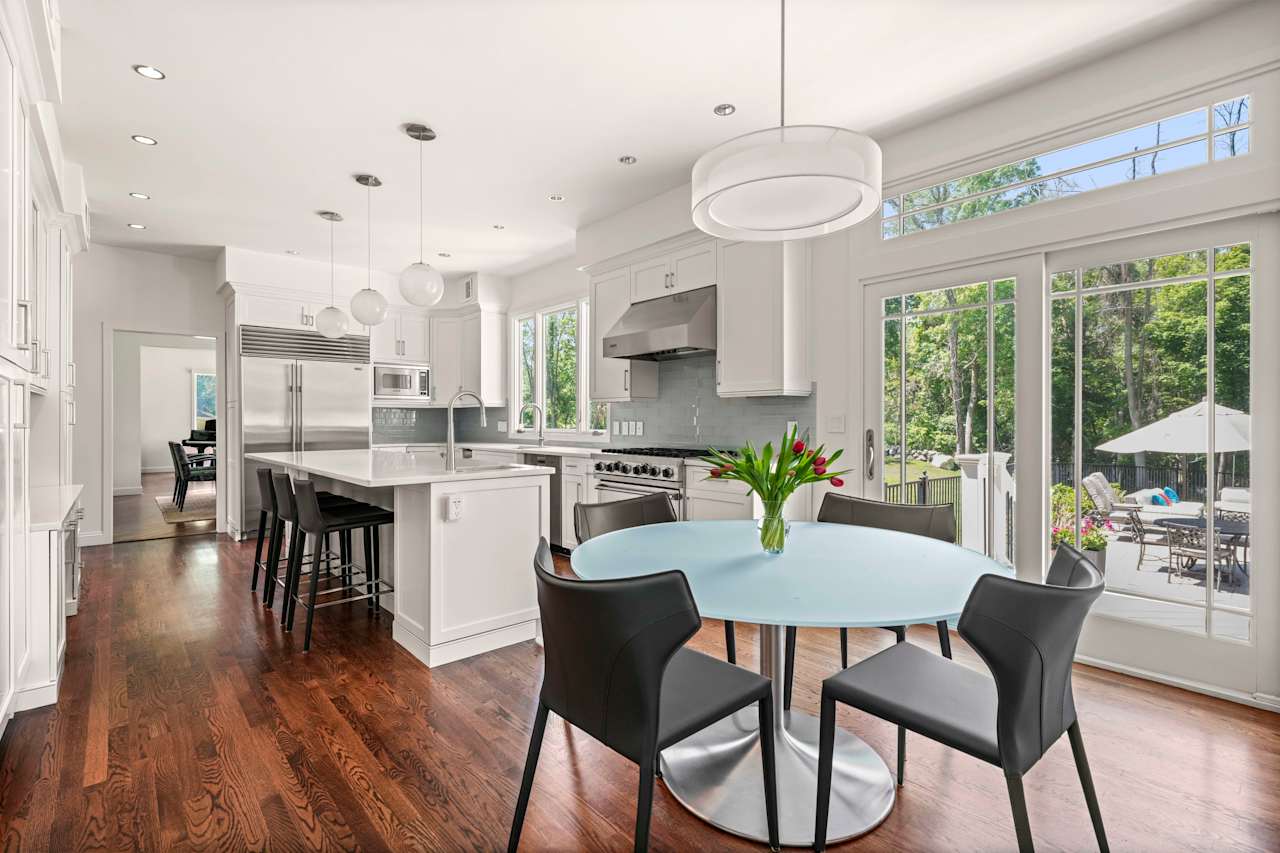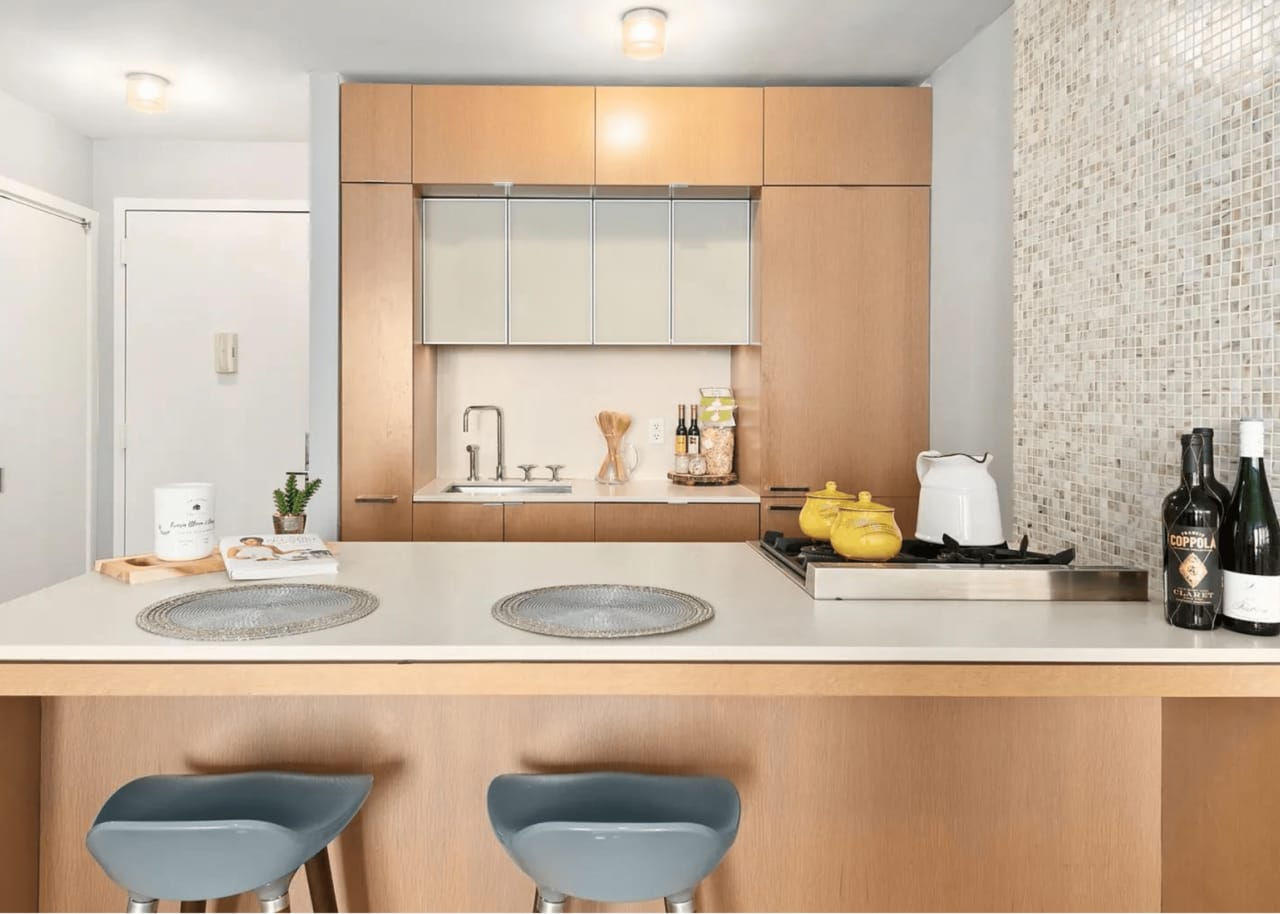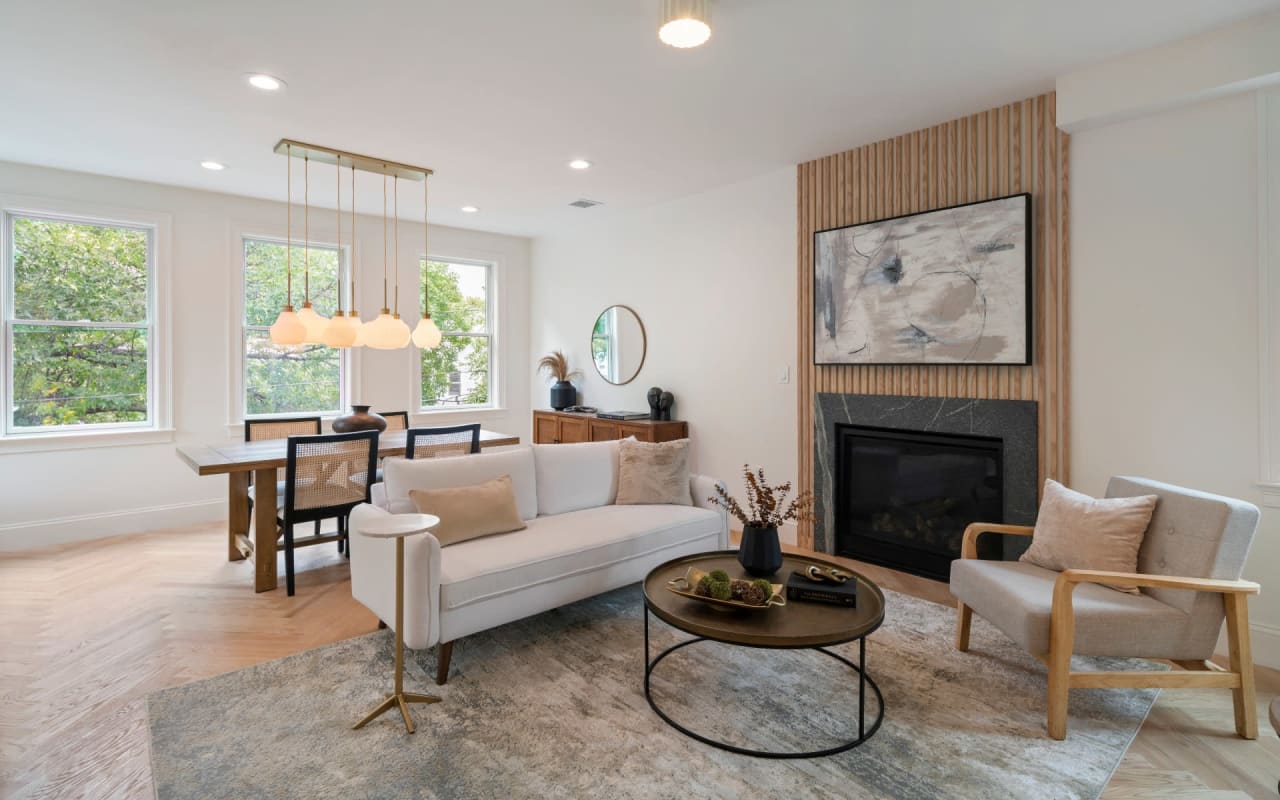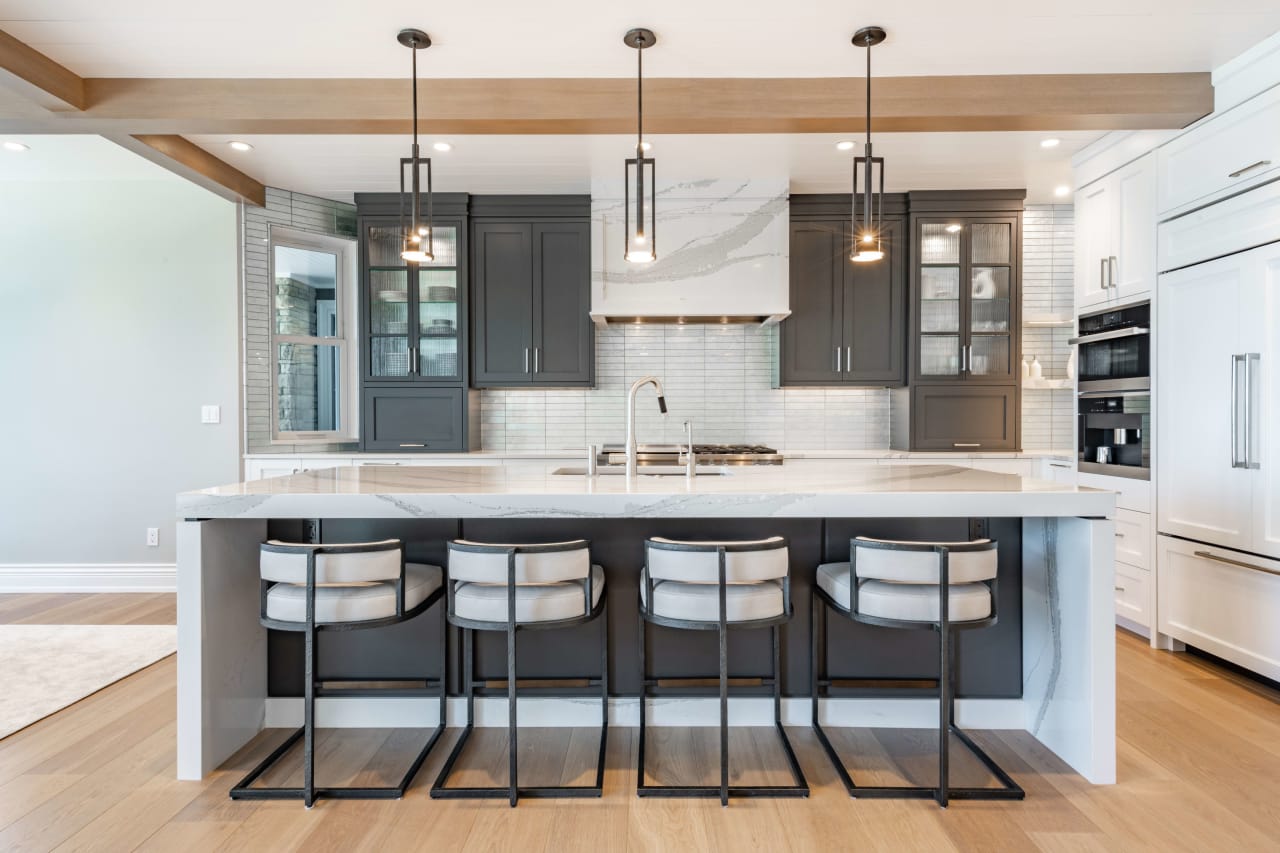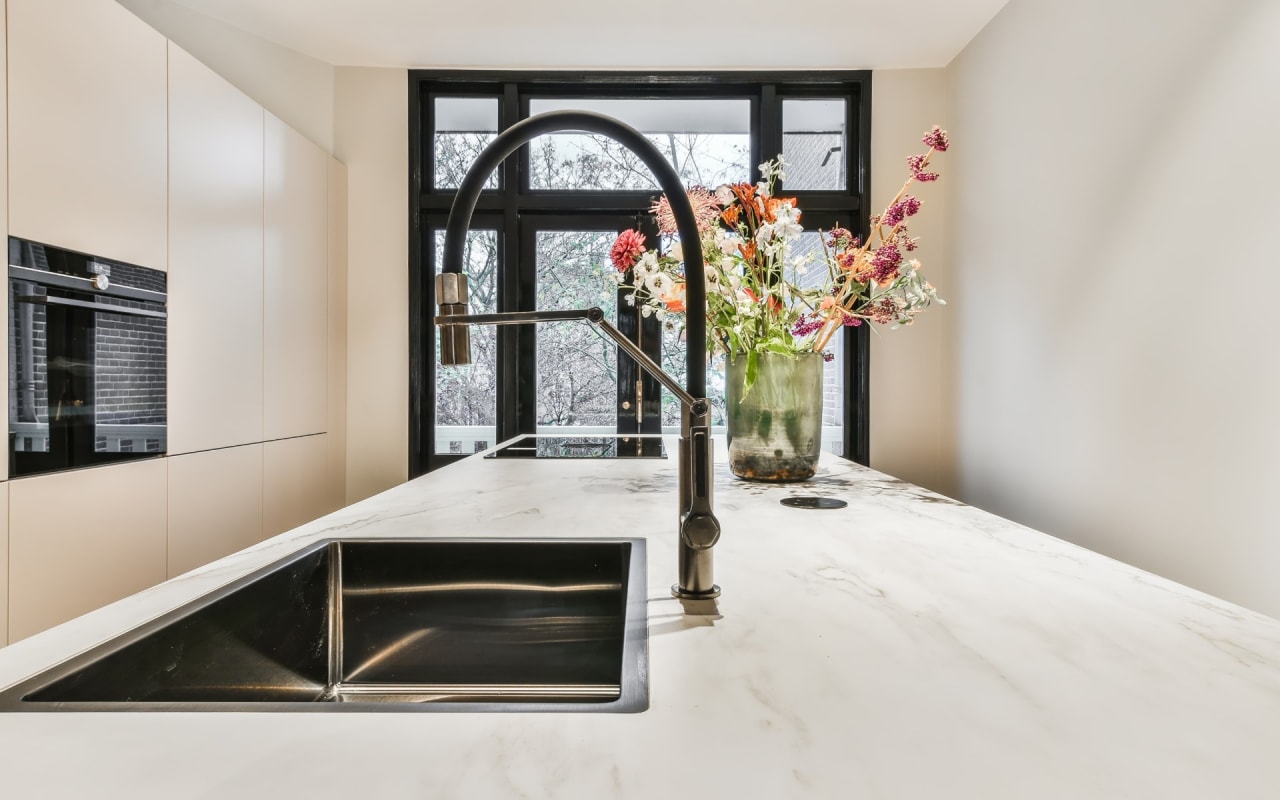Finding a home that is both affordable and suits your wants and needs can sometimes prove challenging for home buyers. Condos can help ease into single-family homeownership or alternatively, transition out of single-family home ownership.
Below, dive into some of the key considerations you’ll want to keep top-of-mind when weighing condo versus a single-family homeownership.
Condos vs. Single-Family Homes: The Key Differences
Condo: An individually-owned condominium unit within a multi-residence building requires less upkeep than a single-family home. In a condo building, you own the interior unit and a proportional share of the entire property. Utilities and maintenance of the common areas (hallways, yards, decks, systems are shared and paid for by the homeowner’s association (HOA) which typically collects monthly fees from condo owners to cover the ongoing costs as well as special assessments for larger projects (like roof replacement, brick repointing, etc.).
Single-family home: With single-family home ownership, you are responsible for the entire structure (interior and exterior). Single-family homes typically have direct street access and do not usually share utilities with other nearby properties. Some single-family homes are part of communities that have HOAs and some monthly or annual fees to cover common maintenance.
Regardless of the property style you’re interested in, know that both can be funded with a mortgage, so it's vital to start the loan application process promptly when you begin your search.
Pros of Condo vs. Single-Family Home Living
Reduced hands-on maintenance: Most condo owners pay HOA dues for exterior and common area maintenance, but by doing so, escape the work and upkeep that single-family homeowners may be tasked with – think: mowing the lawn, cleaning gutters, touching up exterior paint, etc.
Likely less-costly insurance: Compared to single-family homes, condos frequently cost less to insure. This is because single-family homeowners are required to insure both the interior and exterior of their property, versus condo owners who only need to insure the interior portion. Often, only condo insurance is required within condominiums, as the exterior of the property is typically covered by a master policy that the HOA holds.
Location: Depending on your goals, condos may have an advantage in a certain location. Condos can be found much closer to, and even in, larger cities because they take up less space than stand-alone residences. Condos have risen in popularity significantly as urban life has grown increasingly popular.
Amenities: Condos may offer a variety of amenities that residents can use without having to upkeep themselves. Common spaces like parks, pools, fitness facilities, and even parking garages are some examples of what you may find in some condo building.
Community feel: Living close to neighbors in a condo can create a sense of community, making it a great option if you're someone who wants to meet new people and see people coming and going with opportunities to socialize if you want to do so.
Cons of Condo vs. Single-Family Home Living
A condo can be a great option for buyers searching for an affordable start, as they frequently offer access to facilities and spare the owner from having to deal with extensive housework. However, there are a few key drawbacks to consider:
Size: Generally speaking, condos tend towards smaller, more compact spaces than single-family homes, though that is not always the case.
Reduced privacy: The natural, tighter living setups of a condo might mean that you may see and hear people, even when you don't want to, or in the case of a concierge building, have someone seeing you and your guests come and go.
Reduced autonomy: Condo living offers far less freedom than a single-family home. As a condo owner, you’ll need to abide by the policies set forth by your association. For instance, pets may be forbidden or, if permitted, subject to strict guidelines and limitations; or, you may not be able to adorn the exterior balcony of your unit with decorations of your choice if restricted by the association. If you desire more independence as a homeowner, a single-family home might be a better route.
HOA costs: Most condo buildings have HOAs and, as a result, condo owners must pay HOA dues. Such fees will raise your monthly expenses on top of your mortgage payment, however, it's crucial to weigh how they stack up against the cost of single-family home ownership. For instance, if your dues cover services like trash pickup and utilities, it’s likely you’d still have to those costs if you owned a single-family home. However, if you'd have to pay for high-ticket extras that you likely won’t use, you may reconsider that condo building. Of note, HOA fees typically increase over time, and also, there could be special assessments for common areas or amenities, even if you don't use them yourself.
There may be fewer financing options: Mortgage requirements for a condo can differ significantly. When purchasing a single-family home, you may select from those loans for which you are eligible which may include: a conventional, FHA or VA loan. In a condo, you must first confirm that you can utilize specific loan types. For example, some condo buildings may not allow for FHA loans, which may pose a problem for you (a potential buyer) or for future buyers, when it’s time to sell.
Condos may be more difficult to resell: With condos, individual owners are not in control of the overall building management and operations, its condition and maintenance, its reputation, new developments nearby, what's happening in the neighborhood or new condo laws that may have a negative effect.
Should you purchase a condo or single-family home?
There is no right or wrong answer when it comes to purchasing a condo versus a single-family home. It truly depends on your lifestyle wants and needs. Consider the above points prior to making your choice and keep in mind that both property types have the potential to build equity – a great, all-around positive. For guidance with buying or selling in any market, connect with me via email [email protected] or on social media.
Photos throughout courtesy of Boston Condos, Boston Seaport, High Rise Boston, respectively.








